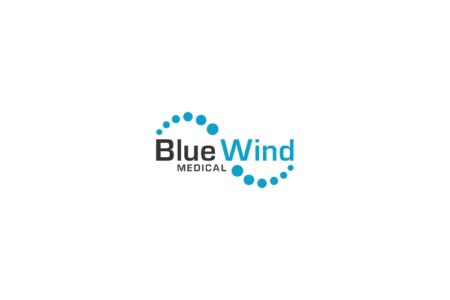
BlueWind Medical’s Revi™ System Secures U.S. FDA De Novo Classification Grant for the Treatment of Urgency Incontinence
August 17, 2023
PARK CITY, Utah, Aug. 17, 2023 /PRNewswire/ — BlueWind Medical, Ltd. today announced that the US Food and Drug Administration (FDA) granted a De Novo marketing request for the Revi System, a transformative tibial neuromodulation therapy for the treatment of the symptoms of urgency incontinence alone or in combination with urinary urgency. Physicians should follow clinical guidelines as applicable and should use their discretion to determine if Revi can be used before patients fail or not tolerate more conservative therapy. The De Novo grant is for men and women with urge urinary incontinence (UUI) and was based on results from the OASIS pivotal trial, in which Revi demonstrated statistically significant improvement in the reduction of symptoms of UUI compared to baseline and a favorable safety profile.
The Revi Implant is a small, battery-free device that is implanted near the ankle during a single, minimally invasive outpatient procedure performed under local anesthesia. When activated the Revi implant stimulates the posterior tibial nerve to provide relief from UUI. For activation, a lightweight wireless wearable is placed around the ankle once to twice daily to provide stimulation at the patient’s convenience. The patient-centric, battery-free design allows for the Revi Implant to be miniaturized to measure 3 cm in length and 3 mm in diameter. This means that future surgery for battery depletion, lead fracture, or lead migration should not be necessary.
“UUI is a debilitating, life-altering condition that impacts every aspect of a patient’s life,” said Cindy L. Amundsen, MD, Roy T. Parker Distinguished Professor of Obstetrics and Gynecology, Division of Urogynecology, Professor of Urology at Duke University School of Medicine who is an investigator for the OASIS clinical trial. She added that “The OASIS safety and efficacy data support the Revi device as a new option for those living with the frustrations of UUI. Additionally, while patient management should be based on clinical guidelines, use of this therapy may be considered by a physician’s assessment before patients fail or cannot tolerate more conservative therapy, which could make this single outpatient procedure available to a larger number of patients with UUI.”
OASIS, a prospective, multicenter, single-arm, open-label clinical study of 151 women, was designed to demonstrate the safety and efficacy of Revi in reducing symptoms of UUI, including urinary urgency. Results were presented at the American Urological Association (AUA) 2023 Annual Meeting by John Heesakkers, M.D., the primary investigator for the OASIS clinical trial, Chairman of the Department of Urology of the Maastricht UMC, the Netherlands, and the International Continence Society General Secretary. OASIS met its primary endpoint with results demonstrating a statistically significant improvement with 76.4% of subjects implanted achieving at least a 50% reduction in urge incontinence episodes at 6 months (p<.0001). At 12 months, 82.0% (114/139) of subjects completing the study achieved at least a 50% reduction in urge incontinence episodes. In addition, at 12 months, 49.6% (69/139) of the patients completing the study were 100% dry during a three consecutive day assessment. There were no serious procedure or device-related adverse events, and all events which did occur were adjudicated by the study’s clinical event committee as either mild or moderate. Moreover, the patient-centric nature of Revi facilitates individually tailored treatment which resulted in an increased response rate over time. In patients who completed the study, the percentage who experienced a ≥75% reduction in UUI symptoms increased from 52.1% at 6 months (75/144) to 66.9% (93/139) at 12 months. In addition, subjects who completed the study through 12 months were compliant with once-daily treatments 91.6% of the time.
“The FDA granting of the De Novo request for Revi is a critical milestone that underscores BlueWind Medical’s unwavering commitment to developing an innovative alternative treatment option for the millions living with this affliction,” said Dan Lemaitre, chief executive officer of BlueWind Medical. “As we embark on this exciting new chapter, we remain dedicated to our mission of improving the lives of the patients we serve by helping them regain control of their UUI symptoms.”
The Department of Health and Human Services, Centers for Medicare and Medicaid Services (CMS), recently published the 2024 Medicare Hospital Outpatient Prospective Payment and Ambulatory Surgical Center Payment Systems Proposed Rule with information relevant to the Revi procedure. In the Proposed Rule issued on Thursday, July 13, 2023, CMS proposed that the new tibial subfascial code X130T will be assigned to Hospital Outpatient Prospective Payment System and Ambulatory Payment Classification for Calendar Year 2024 with a proposed unadjusted national average payment rate of US$21,377.
About BlueWind Medical Ltd.
BlueWind Medical is transforming the field of neuromodulation therapy through the development of innovative, patient-centric medical technology for the treatment of disease. BlueWind is committed to enhancing the quality of life and overall wellbeing of patients with an initial focus on those living with urgency urinary incontinence (UUI). BlueWind’s Revi System is the first and only battery-free implantable tibial neuromodulation device to receive FDA marketing authorization for patients with UUI.
For additional information about BlueWind Medical, please visit www.bluewindmedical.com
SOURCE BlueWind Medical